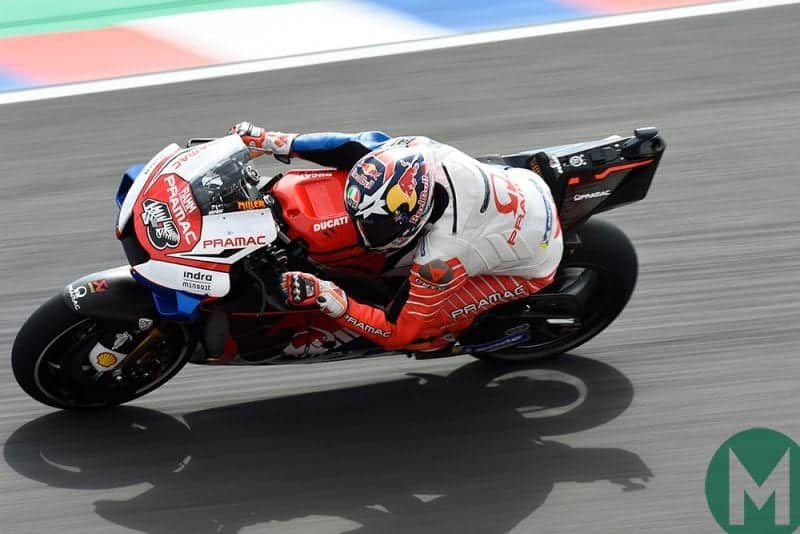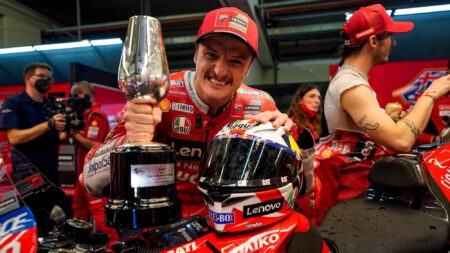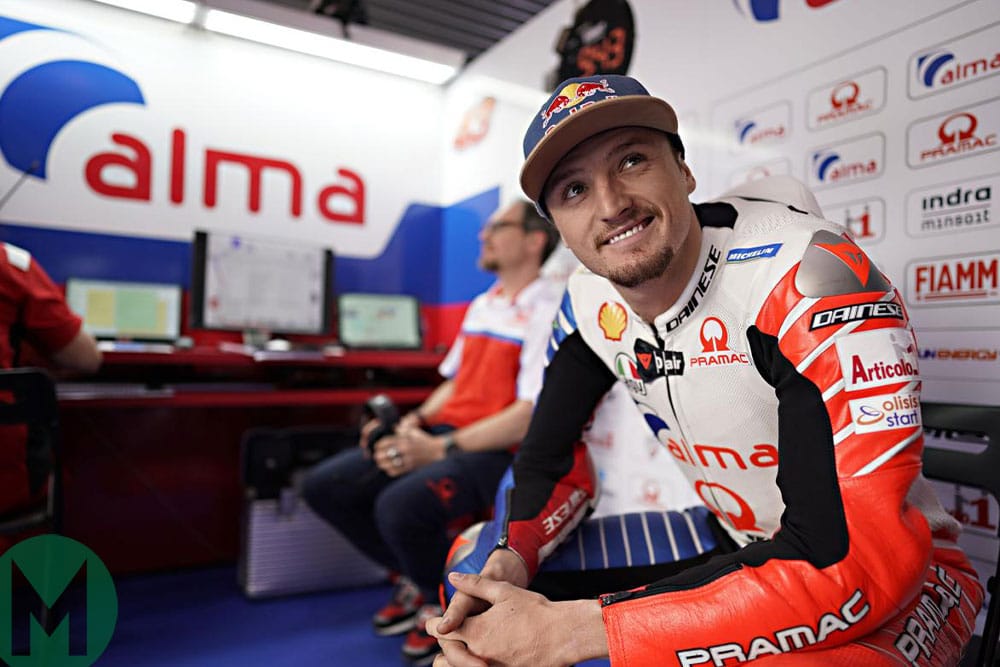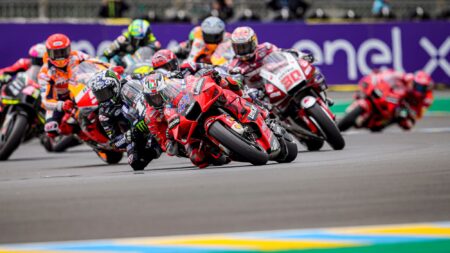Do you think a lot about your technique or does it just happen?
I see a lot of the young kids trying to get their elbow on the ground and stuff like that, which I was never too fussed about. When I say I’ve got a different style I know it’s not the prettiest style. I look at other guys and I think, shit, I wish I could look like that on a bike! But I’m not here for beauty, I’m here for what works for me. Of course, I’m always trying to see what the other guys are doing and trying to work it out.
What’s the most critical part of the corner for you?
For me, it’s more about being patient during corner entry, not trying to make up time there, because the rear Michelin is so much better. So it’s all about getting the bike as calm as possible into the corner, so you’ve got it ready to really fire it out of the turn, using that rear grip to your advantage for the lap time.
You use the rear brake a lot, right?
I used it a lot more with the Honda – for wheelies, for turning, for stopping, the whole thing. If you think of somewhere like Turn Three at Sepang: the moment you exit Turn Two you’re on the rear brake to stop the wheelie, then you’re on the brake to make the bike turn through Turn Three, where you’re on the rear brake the whole way through the corner.
“The first time I hopped off a Moto3 bike onto a Honda MotoGP bike I cooked the rear brakes”
What percentage of each lap do you use the rear brake?
On the Honda I used it absolutely everywhere, until I was in fourth gear on the straights. I’d use it a bit during straight-line braking, then more during last-minute braking, once the bike is settled and you know where you’re going, just to control your speed entering the corner.
So pretty much the whole lap, apart from the end of the straights?!
Yes, once you had enough speed on the straights to stop the wheelie, or once the wings had enough downforce to hold the front end down.
Have you tried a thumb brake, as used by [Andrea] Dovizioso and so on?
I had one on the bike for all last year’s preseason tests and the first race, but I never touched it once, not even in pit lane.
Stoner came from dirt track, so presumably your rear-brake thing comes from that?
I came more from motocross than dirt track; I only did dirt tracks on the weekends I wasn’t racing motocross. I used the rear brake a lot, so it comes naturally now. The first time I hopped off a Moto3 bike onto a Honda MotoGP bike for 2015 I cooked the rear brakes. We had to search with Brembo and Honda to find something I could use. The first MotoGP test I did I was melting rear discs, so we fitted a bigger disc, but then I started melting the pads. They were getting so hot they were bending around the pistons. After three laps in Argentina [in 2015] I had no rear brake.
And now?
When I was at Honda I continued using an oversize rear disc with a bigger pump and master cylinder. Now with the Ducati I don’t feel the need to use the rear brake as much as I did before.
How do you get on with the process of tyre selection?
It’s not like it was with Bridgestone, when the difference between soft, medium and hard was soft… medium… hard. Now it’s like soft, then a tiny bit then medium, then a little bit harder for the hard, so there’s not much difference between the different compounds.
Is that challenging or frustrating?
It’s challenging and I think it’s good for the sport because it throws in the tyre aspect again. It’s difficult sometimes because you still get the occasional inconsistent tyre now and then, but that’s getting better. At the end of 2017 the tyres that had already been fitted gave us some problems, so now they’ve got a system where everyone gets one tyre of each compound that’s a refitted tyre and you get told which tyre it is, so you try and use that straight away. Michelin is getting better and it’s working really hard. It is what it is and I can’t imagine it’s very easy to produce the amount of tyres it needs to produce to make everyone happy.




